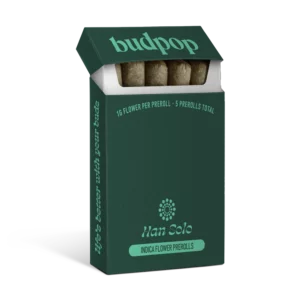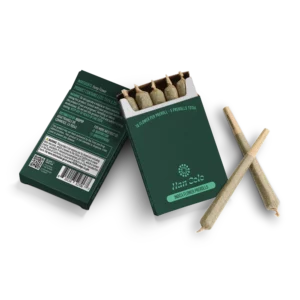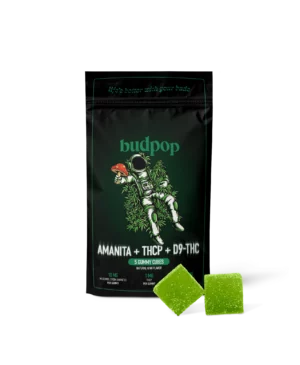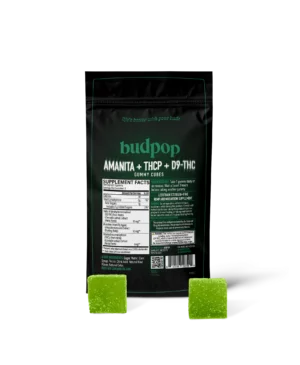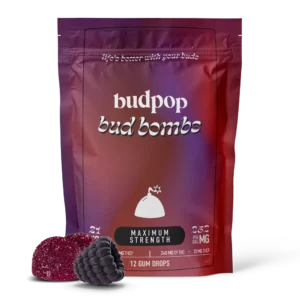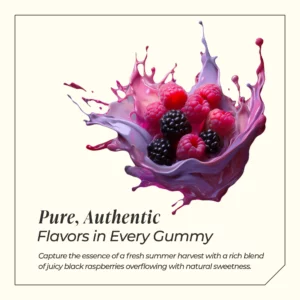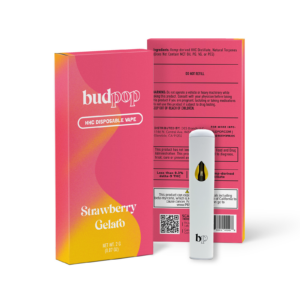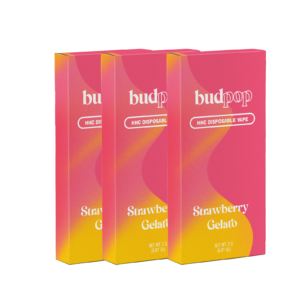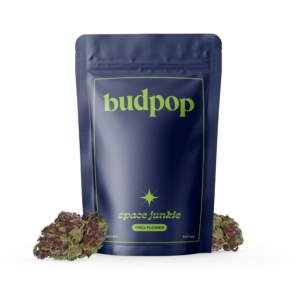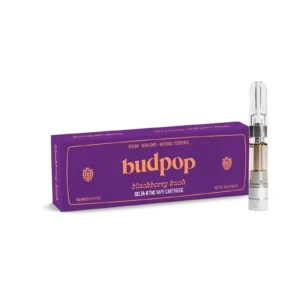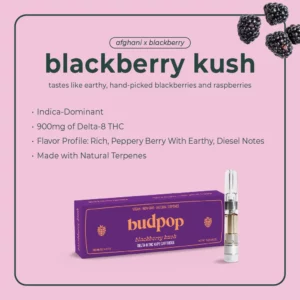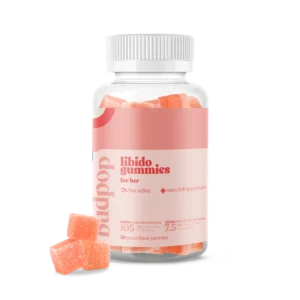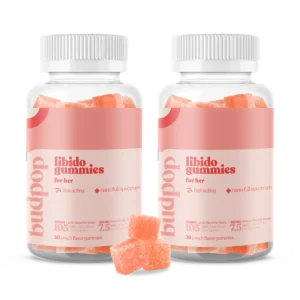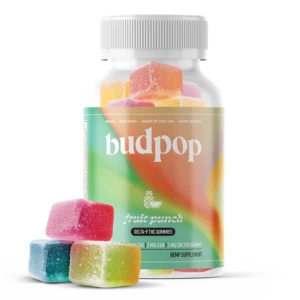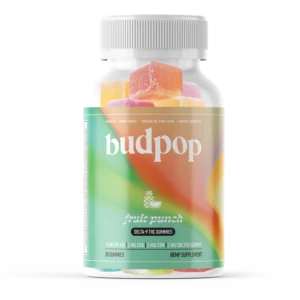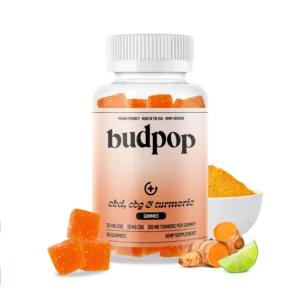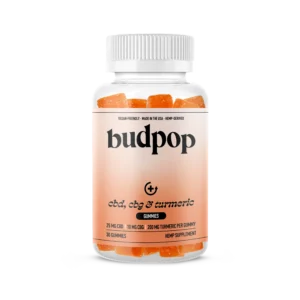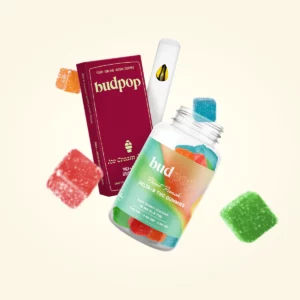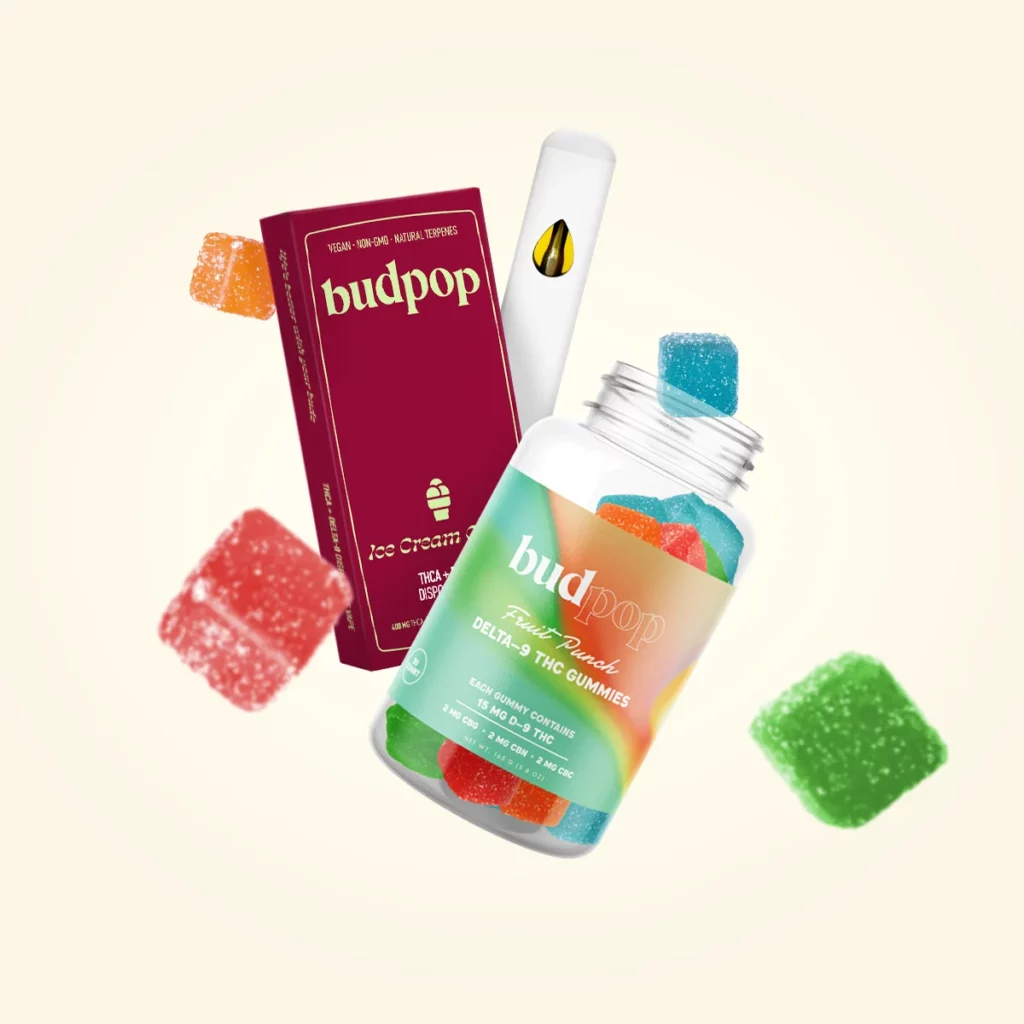![THCa vs Delta 8 [A Comprehensive Guide for Cannabis Enthusiasts] thca vs delta 8](https://budpop.com/wp-content/uploads/2024/11/thca-vs-delta-8.jpg)
THCa vs Delta 8 [A Comprehensive Guide for Cannabis Enthusiasts]
The cannabis world is full of different compounds, each with unique effects and benefits. Two cannabinoids gaining attention are THCa and Delta 8. While they both come from the cannabis plant, their effects, production, and legality are pretty different. The key distinction when comparing THCa vs Delta 8 is the presence of euphoria. THCa is found in raw cannabis and doesn’t produce a “fade” unless it’s heated. Delta 8, on the other hand, offers mild euphoric effects.
For those who are exploring cannabis for potential wellness, understanding these differences can help make the right choice. So, let’s explore the THCa vs Delta 8 debate. We’ll examine what sets them apart, how they’re made, their benefits, and more.
What Is THCa?
THCa, or Tetrahydrocannabinolic Acid (also abbreviated as THC-a, THCA, or THC-A), is a non-euphoric cannabinoid found in fresh cannabis plants. It’s often called the “raw” or “uncooked” form of THC (Delta 9 Tetrahydrocannabinol, Delta 9 THC, Delta 9, D9 THC, or D9). THCa is abundant in raw cannabis buds and leaves.
THCa doesn’t produce any euphoric effects when consumed as it is. However, when it’s heated (through smoking, vaping, or cooking), THCa goes through decarboxylation. This process converts it into THC, the well-known euphoric compound. This transformation is what gives THC its euphoric and potent psychoactive properties, while THCa in its raw form remains non-euphoric.
Chemically, THCa has an extra carboxyl group attached to it. This makes it inactive in terms of producing a “fade.” Because of its chemical structure, many people view THCa as a great option for reaping some of cannabis’ wellness benefits minus the euphoria. THCa may support overall calmness, improve mood, reduce physical discomfort, and promote better sleep and digestion.
It’s also worth noting that THCa is delicate and can break down easily when exposed to light or heat. So, if you’re looking to preserve its properties, consuming this cannabis compound raw or minimally processed is ideal.
What Is Delta 8 THC?
Delta 8 THC, or Delta-8 Tertrahydrocannabinol, is a less common type of THC with a similar but slightly different structure to Delta 9 THC, the primary euphoric component in marijuana. Delta 8 is mildly euphoric, producing a more relaxing fade compared to THC.
Also written as Delta 8 THC, Delta 8, D8 THC, or D8, the chemical composition of this extremely rare cannabinoid has a double bond on the eighth carbon. The difference in chemical compositions might seem trivial, but it’s what sets D8 apart from other more stimulating cannabinoids. THC, in comparison, has a double bond on the ninth, which changes how it interacts with the body’s cannabinoid receptors.
Delta 8 is popular among those looking for a less intense experience. This compound is known to produce feelings of relaxation and mild euphoria and won’t produce psychoactive effects that are overwhelming. Delta 8 THC’s calming properties make it ideal for evening enjoyment.
Obtaining Delta 8 THC from cannabis plants is very cost-prohibitive and inefficient. It’s so rare that less than 1% of a hemp plant has the cannabinoid. To produce abundant amounts of Delta 8 THC to meet demand, manufacturers semi-synthesize it from CBD (Cannabidiol, a non-psychoactive cannabinoid) from hemp plants. Through a chemical process called isomerization, manufacturers convert CBD into Delta 8 THC. This process allows Delta 8 to be classified as a hemp-derived cannabinoid under the 2018 Farm Bill, which makes it federally legal for sale and consumption (though state laws can vary).
How THCa Is Made
THCa is naturally produced in the cannabis plant as it matures. As cannabis plants mature, they generate cannabinoids in an acidic form, including THCa. As we mentioned, the cannabinoid is the acidic precursor to THC.
THCa is most concentrated in raw cannabis. It starts to degrade when exposed to sunlight, heat, or time. To preserve THCa, the plant material needs to be kept fresh or processed without high heat.
For those consuming THCa without the euphoria, they’ll often choose fresh cannabis leaves, raw cannabis juice, or specially made THCa products like tinctures or powders. The unique, non-euphoric properties of THCa make it popular among people interested in cannabis for therapeutic purposes without the high potency THC experience.
How Delta 8 THC Is Made
Because Delta 8 Tetrahydrocannabinol compounds occur in such low quantities in cannabis plants, they cannot be efficiently extracted in sufficient amounts. Delta 8 is typically made from hemp-derived CBD, which is more abundant. Manufacturers first obtain CBD-rich cannabis extracts from hemp plants. They then use a chemical process called isomerization to convert CBD into Delta 8 THC.
This process rearranges the molecular structure of CBD to form Delta 8. Isomerization provides a safe and efficient way to produce ample amounts of Delta 8 THC to make a variety of in-demand goods. These range from gummies, tinctures, capsules, vapes, and flower.
Ways To Take THCa
For those who want to consume THCa, there are several methods to enjoy it while keeping its non-intoxicating properties intact.
- THCa Flower. This is THCa in its purest form. THCa flower are hemp flower buds rich in THCa. Many consume the flower raw by incorporating it into cold drinks like smoothies and juices or as a raw food supplement. Consuming raw THCa will deliver wellness benefits without the euphoria.
- THCa Pre-Rolls: Also known as THCa joints are pre-made smokable joints that contain high-THCa cannabis flower. As long as they’re not heated, they won’t produce the euphoric effects associated with THC. But that kind of defeats the purpose of a joint. You can open them up and consume the flower raw by incorporating it into smoothies or using it as a garnish on cold foods like salads.
- THCa Carts. Also known as THCa vape cartridges, they are pre-filled with THCa oil and can be attached to standard vape batteries for convenient enjoyment. When used at lower temperatures, below the range of 220-245°F (104-118°C), these carts may preserve THCa’s non-euphoric properties. However, most THCa carts on the market are designed to fully convert THCa into THC, so use with caution if you want a non-euphoric experience.
- THCa Disposable Vapes. Also known as THCa disposables, these ready-to-use vaporizers contain THCa oil and do not require refilling or recharging. They are popular among those who want a convenient, portable way to access THCa’s potential benefits. Like THCa carts, THCa disposables available on the market are designed to fully convert THCa into THC for a euphoric experience.
Looking to try high-quality THCa products? Check out Budpop’s selection of THCa products. Enjoy carts, flower, and pre-rolls for trusted, premium options.
Ways To Take Delta 8 THC
Delta 8 THC is available in a variety of hemp-derived products, each offering a unique experience. Here are some popular ways to enjoy Delta 8.
- Delta 8 Gummies. When it comes to edibles, Delta 8 THC gummies are a tasty, discreet way to enjoy the benefits of D8. They’re predosed, which makes them a beginner-friendly option for controlled dosing. Plus, they come in various flavors to make the experience extra pleasing.
- Delta 8 Carts. Also known as Delta 8 vape carts, contain Delta 8 THC oil and are universally compatible with vape pens. This option is quick-acting and convenient for those who want effects to set in quickly. The terpene-rich flavors also make it a more palatable experience than smoking.
- Delta 8 Disposable Vapes. Also known as Delta 8 disposables, these portable vaporizers are ready to use right out of the box. They’re popular for on-the-go consumers who want mild euphoric effects without the hassle of a complicated setup. There is no refilling or recharging. Just take a drag; these draw-activated vapes are
- Delta 8 Oil. Sometimes referred to as Delta 8 tinctures, oils can be taken sublingually (by placing your dose under the tongue) or added to food and drinks. Oils provide versatility in dosage and method of use.
- Delta 8 Flower. Growing flower naturally high in Delta 8 THC is extremely difficult. To overcome this, manufacturers infuse CBD hemp flower buds with hemp-derived Delta 8 THC distillate, resulting in a premium Delta 8 flower. Ideal for enthusiasts, this product offers a versatile experience and can be enjoyed in a variety of traditional ways.
Ready to explore Delta 8 products? Visit our Budpop Delta 8 shop for a range of premium D8 products, from gummies and carts to oils and flower. You’ll find something to suit your needs!
Potential Benefits of THCa
THCa provides a range of potential therapeutic benefits for those seeking a non-euphoric wellness option. Here are some of its main potential effects.
Upset Stomach Relief and Appetite Stimulation
THCa may help people manage upset stomachs and help to increase appetite. This can be particularly useful for individuals dealing with certain medical treatments or conditions that suppress appetite. By naturally supporting appetite, THCa helps consumers maintain adequate nutritional intake and digestive wellness.
Supporting Cellular Health
Research shows that THCa may potentially support the health of certain cells in the body. This property has drawn attention to THCa as a possible aid for wellness routines focused on cellular health, though more research is still underway and far from conclusive.
Discomfort Relief and Mobility Support
Known for its soothing properties, THCa may offer natural relief for those experiencing mobility discomfort due to chronic joint issues or general physical discomfort. By helping reduce nagging soreness, THCa allows consumers to enjoy better physical comfort and mobility.
Cognition Support
THCa also holds promise as a neuroprotective compound, which may support brain health and cognitive function. This benefit makes THCa popular among individuals interested in long-term mental wellness, as it may provide some protection for neurons and overall brain function.
Potential Benefits of Delta 8 THC
Delta 8 THC offers unique potential wellness benefits, making it a popular choice for many consumers. Here’s a closer look at some of its key benefits.
Physical Discomfort Relief
Delta 8 THC may help alleviate physical discomfort, such as muscle soreness, joint pain, and everyday aches. By interacting with the body’s endocannabinoid system, Delta 8 can potentially reduce physical discomfort perception, offering natural relief that helps people stay active and comfortable.
Anxiousness Reduction
Known for its gentle calming effects, Delta 8 can help to reduce feelings of anxiousness, making it a favorite for those who want to unwind without experiencing strong euphoria. Many consumers find Delta 8 helpful for managing daily stress and enhancing emotional well-being.
Cognition Support
Delta 8 THC has potential neuroprotective properties, meaning it may help support mental clarity and focus over time. People looking to maintain cognitive health are exploring Delta 8 as part of a wellness routine that supports long-term brain function.
Relaxation
Delta 8 THC provides a mild, smooth relaxation that doesn’t overwhelm the senses, making it ideal for people who want to feel at ease without intense effects. This quality makes Delta 8 a great choice for unwinding at the end of the day, encouraging relaxation while keeping you clear-headed.
THCa vs Delta 8: Legal Status
THCa vs Delta 8 legal status hinges on the source of the cannabis plant. Under the 2018 Farm Bill, hemp-derived cannabinoids and products containing them are federally legal as long as they contain less than 0.3% Delta 9 THC by dry weight. This makes both THCa and Delta 8 accessible in many places if they’re sourced from hemp rather than marijuana plants.
However, it’s important to note that state laws vary. Some states have restricted Delta 8 THC specifically, even if it is hemp-derived. THCa, in its non-euphoric, raw form, is typically more widely accepted, though consumers should still check local laws to ensure compliance.
As long as these cannabinoids are derived from hemp and products containing them satisfy the federal THC content requirement, they can be a legal option for those seeking alternative cannabis products.
Final Thoughts –THCa vs Delta 8 [A Comprehensive Guide for Cannabis Enthusiasts]
When it comes to Delta 8 vs THCa, the best choice depends on your personal needs and goals. THCa is perfect for those looking to experience the benefits of cannabis without any euphoria, making it popular among people interested in natural “without-the-fade” wellness. Just be careful not to heat THCa. When you do, it decarboxylates and converts into euphoric THC. Delta 8 THC, on the other hand, offers a mild, relaxing euphoria and potential wellness benefits, making it a great option for people who want to feel relaxed without the intensity of traditional THC.
Both compounds offer unique advantages and experiences, so whether you’re looking for relief from discomfort, a calming effect, or just want to explore other cannabinoids, THCa and Delta 8 both offer something valuable. As with any cannabis product, make sure to research and follow your local regulations before purchasing. Visit our online shop for the best legal THCa products online and a deep selection of Delta 8 gummies, vapes, and flower!
![THCa vs Delta 8 [A Comprehensive Guide for Cannabis Enthusiasts] thca tetrahydrocannabinolic acid chemical structure](https://budpop.com/wp-content/uploads/2024/11/thca-tetrahydrocannabinolic-acid-chemical-structure-1.jpg)
![THCa vs Delta 8 [A Comprehensive Guide for Cannabis Enthusiasts] delta 8 thc chemical structure white background next to cannabis leaves](https://budpop.com/wp-content/uploads/2024/11/delta-8-thc-chemical-structure-white-background-next-to-cannabis-leaves.jpg)
![THCa vs Delta 8 [A Comprehensive Guide for Cannabis Enthusiasts] cannabis buds with vapes in background](https://budpop.com/wp-content/uploads/2024/11/cannabis-buds-with-vapes-in-background.jpg)
![THCa vs Delta 8 [A Comprehensive Guide for Cannabis Enthusiasts] old man wearing orange shirt doing push ups](https://budpop.com/wp-content/uploads/2024/11/old-man-wearing-orange-shirt-doing-push-ups.jpg)
![THCa vs Delta 8 [A Comprehensive Guide for Cannabis Enthusiasts] woman outside in prayer pose](https://budpop.com/wp-content/uploads/2024/11/woman-outside-in-prayer-pose.jpg)
![THCv vs THC [4 Eye-Opening Insights Into Their Effects] thcv vs thc](https://budpop.com/wp-content/uploads/2024/11/thcv-vs-thc-1-150x150.jpg)
![Delta 8 vs Delta 9 [The Ultimate Comparison Guide] delta 8 vs delta 9](https://budpop.com/wp-content/uploads/2024/11/delta-8-vs-delta-9-150x150.jpg)
![What Is HHC? [Discover a Soothing Twist on THC] what is hhc](https://budpop.com/wp-content/uploads/2024/08/what-is-hhc-150x150.jpg)
![Is Delta 9 THC Synthetic? [A Complete Analysis] is delta 9 thc synthetic](https://budpop.com/wp-content/uploads/2024/06/is-delta-9-thc-synthetic-150x150.jpg)
![What Does CBD Do? [The Surprising Ways It's Revolutionizing Wellness] what does cbd do](https://budpop.com/wp-content/uploads/2024/10/what-does-cbd-do-150x150.jpg)
![HHC vs THC [Discover 4 Unique Benefits of Each Cannabinoid!] hhc vs thc](https://budpop.com/wp-content/uploads/2024/08/hhc-vs-thc-150x150.jpg)
